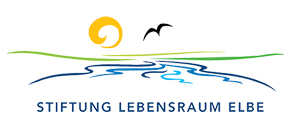Our two-day workshop "Embracing Estuaries – Management of Natura 2000 sites in Estuaries and Sea Ports”, took place on 15 and 16 September 2016. It was a vital part of the Biogeographical Process of the Atlantic Region. The workshop’s main goal was to encourage dialogue between scientists, practitioners and policymakers, and to encourage their collaboration on the challenges of managing Natura 2000 sites and implementing management plans in estuaries and sea ports.
We would like to thank the participants for sharing their knowledge and ideas and thus making this event a worthwhile experience for all.
The results of the workshop are given below. For download, please click on the presentations’ titles.
Opening
State secretary Michael Pollmann: Greetings
Dr. Elisabeth Klocke (Elbe Habitat Foundation): Introductory speech
Setting the Scene
François Kremer (EU-Commission): The NATURA 2000 Biogeographical Process
Christina Müller (Federal Agency for Nature Conservation, Germany): Distribution and conservation status of habitat type ‘Estuaries’
Beatrice Claus (WWF Germany): Integrated Management Plans: from “Paper Tigers” to the implementation of measures
Dr. Kirsten Wolfstein (Hamburg Port Authority): TIDE: Integrated management for estuaries. Lessons learnt from an international EU project
Session I - Natura 2000 Management Plans Integrated Approaches & Implementation
Christian Michalczyk (Hamburg Ministry of Environment and Energy): Integrated Management Plan for the Elbe Estuary
Stefaan Verzweyfeld (Natuurpunt): Embracing the Scheldt Estuary: Integrated Planning for port development, flooding control and nature restoration
Marjan Datema (Ministry of Economic Affairs, NL): The Integral Management Plan for the Ems Estuary
Nolwenn Briand & Maïwenn Barret-Marhic (Regional Direction for Environment, Land Planning and Housing Policies of Normandy): Management of the Natura 2000 sites in the Seine Estuary
Tania Davey (Humber Nature Partnership): Humber Management Scheme
Prof. Patrick Meire (University of Antwerp): Ecosystem services of estuarine and coastal areas: the basis for restoration and an integrated approach?
Working-Groups (Session I)
Questions
Summarised Working Group Results
Field Trips
Heuckenlock with Dr. Heike Markus-Michalczyk
Kreetsand with Manfred Meine (Hamburg Port Authority (HPA)). Here you find the link to the Kreetsand-movie.
Session II - Habitat Restoration
Dr. Bastian Schuchardt (BioConsult): Estuarine Habitat Restoration in Germany: Experiences and Perspectives
Roger Morris (Bright Angel Coastal Consultants Ltd.): Inter-tidal habitat creation - experience in England
Yves Plancke (Flemish Government, Department Mobility and Public Works): A new disposal strategy in the Schelde-estuary, conciliating port accessibility and nature
Working-Groups (Session II)
Questions
Summarised Working Group Results
Detailed Working Group Results
Session III – Legal Issues
Prof. Mike Elliott (University of Hull, Institute of Estuarine & Coastal Studies): How to satisfy industry and nature - the ability to create an integrated Estuarine Planning Support System
Emma Hawthorne (Natural England): The South Humber Gateway
Hendrik Schoukens (University of Ghent): Temporary nature as innovative approach to nature conservation: legal underpinnings and potential constraints
Working-Groups (Session III)
Questions
Summarised Working Group Results
Detailed Working Group Results
Session IV – Communication
Tina Stroobandt (Jusbox, on behalf of Waterwegen en Zeekanaal NV): Polders of Kruibeke. Participation and Communication
Dr. David Parker (Eurosite & Dee Estuary Conservation Group): The importance of communication to the sustainable management of the Dee Estuary (Natura 2000 and Ramsar) UK
Alexander Porschke (NABU, Hamburg): The long way from confrontation to cooperation
Working-Groups (Session IV)
Questions
Summarised Working Group Results
Detailed Working Group Results
More Information:
Sponsers and Supporters:
The workshop is a Natura 2000 Biogeographical Process Networking Event organised in cooperation with the European Commission and the Hamburg Ministry of Environment and Energy. It is supported by the German Federal Agency for Nature Conservation and funded by the Federal Ministry for the Environment, Nature Conservation, Building and Nuclear Safety. ECNC and Eurosite are supporting the organisation of the workshop as a part of the contractor’s team for the Natura 2000 Biogeographical Process. The workshop is promoted by Paralia, a project of IMIEU.









































